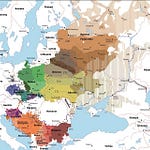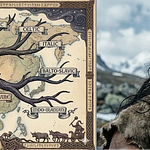How is it that babies across entirely different cultures seemingly elicit one single sort of “baby talk” from adults? To answer this question, Razib talks to Cody Moser, coauthor of a recent paper on the topic, and an evolutionary psychologist and cultural evolutionist at UC Merced. Moser first discusses what cultural evolution today means in the context of American anthropology, and how it relates to the new field of evolutionary psychology. He observes that some of the conceptual ideas that underpin modern cultural evolution actually have roots in naturalistic frameworks dating back decades, though out of fashion in American cultural anthropology since just after World War II. Razib and Moser compare and contrast the descriptive and interpretive methods of most cultural anthropology, and the formalistic evolutionary paradigm of cultural evolution.
Then Moser gets to the meat of the paper on which he was the second author. He points out that humans have noted the similarities across cultures for decades, with evolutionary psychologists concluding this is a human universal. But it takes evolutionary and cognitive frameworks to understand how this phenomenon emerges naturally out of the common biological heritage of our species. Moser outlines the structural conditions that result in the universality of baby talk across cultures, and what benefits this universality might confer upon us as a species.














